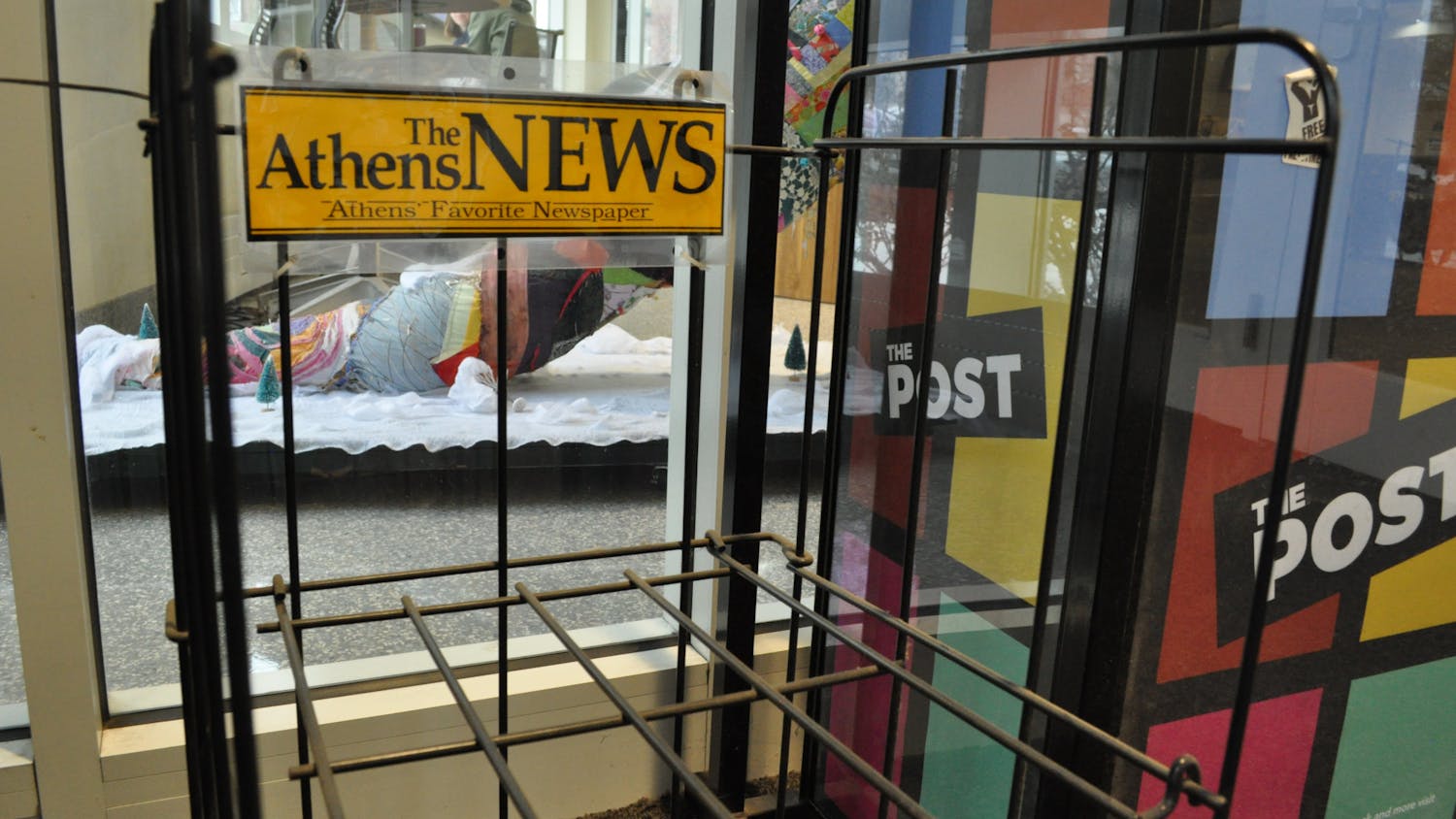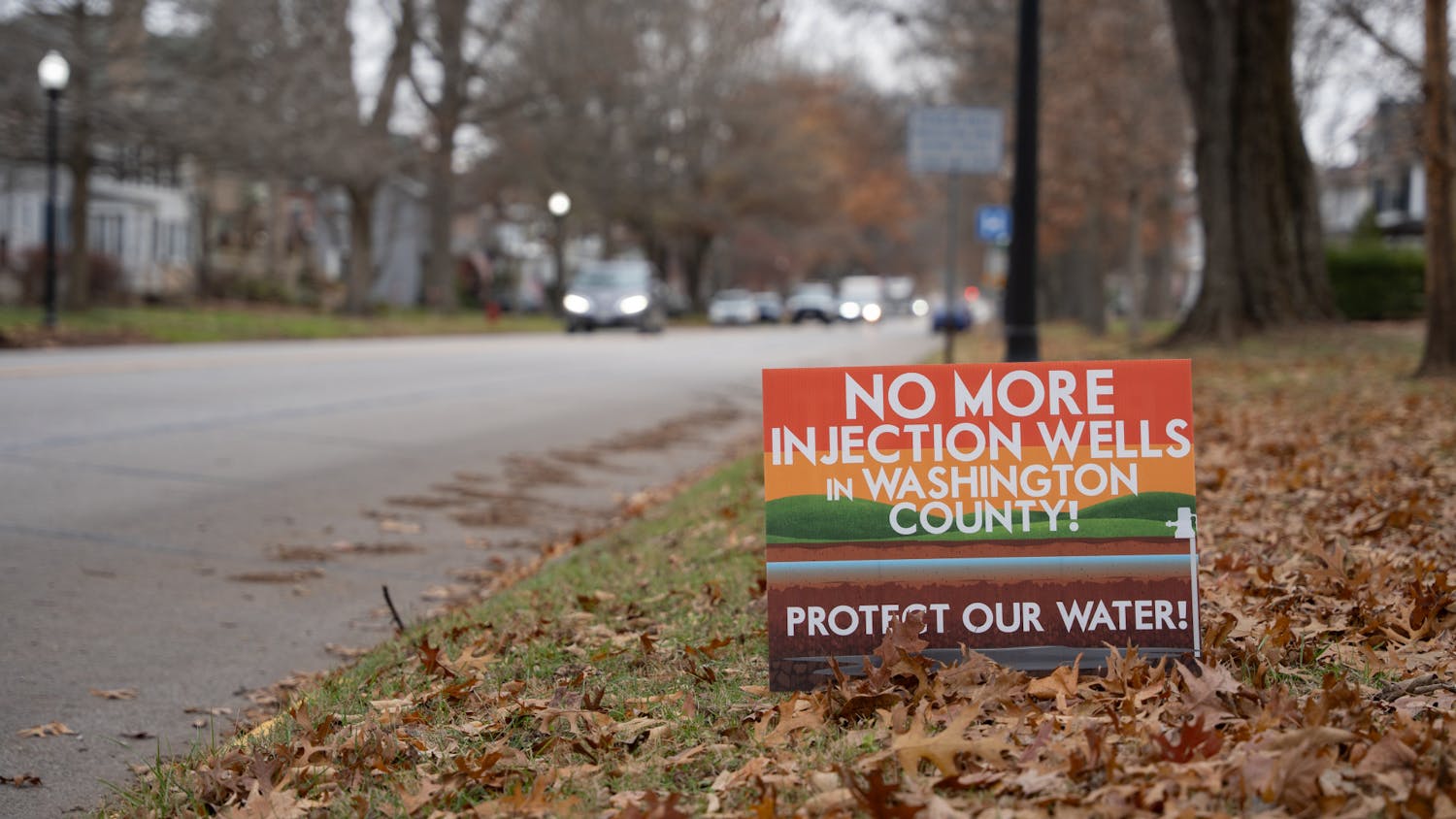OU President Duane Nellis announced Monday during a Faculty Senate meeting that OU will be implementing a new COVID-19 testing strategy as part of Phase 2.
While working with Gillian Ice, professor and director of global health, and her colleagues, OU administration will implement a new testing strategy to screen students who are symptomatic as well as asymptomatic.
“We signed a contract with OhioHealth to do a significant number of tests, but we also are finalizing an agreement with CVS, which will allow us rapid testing for a large number of asymptomatic cases as well,” Nellis said.
Ice spoke more in detail about the CVS testing agreement.
“What they'll be doing is a Abbott ID test, which is a 15 minute PCR (Polymerase chain reaction) test (and) has very close sensitivity and specificity to your standard PCR test. The testing will occur on campus in Grosvenor West 111,” Ice said. “We will be doing what we call wide net testing. So if there's a positive that's associated with campus, we'll be doing any testing around that person. So if it's a floor in a dorm, we'll test a variety of people on that floor.”
Ice said the university will be doing random sampling in addition to wide net testing.
“We'll stratify from the populations off campus and on campus. And then if that nets like certain clusters, so that we know there are certain places where there are more infections, we'll shift a bit to a cluster strategy,” Ice said.
OU employees have an opportunity to be part of the random sampling.
“We also are working on an employee strategy, which will start with inviting people that are in the higher risk groups. So people that work in housing, in cleaning, the service sort of things that … have high contact, high risk. And then we will also have an open invite for other people who would want to be selected would be one would like to be part of the random sampling, as well,” Ice said. “We have the ability now to test between 150 to 180 people per day, Monday through Friday, with the ability to ramp up if we need to.”
When asked about potential repercussions for students going out to bars or parties, Nellis said that a plan for consequences for students who go out to bars or parties is still being worked out. OU administrators have been working with the Ohio University and Athens Police Departments, Ice, Executive Vice President and Provost Elizabeth Sayrs and Senior Vice President for Finance an Administration Deb Schaffer on how to address students who do not follow the OU Student Code do Conduct.
“It's going to be really important that we have appropriate penalties I guess, for those that violate our rules and put people in danger,” Nellis said. “But we're working through what that will actually look like as we move towards September 28.”
In order to do more contact tracing, though, there needs to be students who are willing to come forward — even if they caught COVID-19 from going to a party.
“But we also really don't want to disincentivize students from participating in contact tracing. So, information that comes in through contact tracing is not going to be harmful to students if it comes through that way,” Sayrs said. “We don't want students not participating in contact tracing because they were at a party or not wearing a mask.”
Currently, there is not a specific number for the level of spread that would affect students coming back for Phase 2.
“We don't have hard and fast numbers on what we're going to do as far as the threshold, because we could say that if there's more than 20% of the students infected, that will change course, but if we get to 19, does that mean we're okay? I'm not comfortable with that,” Ice said. “It's really a balance of not only the level of infection and spread, but … the health department's ability to manage those.”
For Phase 2, 31% of undergraduate students and 100% of graduate students and medical students are eligible to return to campus.
“We do expect though to have some students that have been invited back to choose to stay online throughout the semester,” Nellis said. “I just noticed, tracking the residence hall invitations, that we've had a number of students decline to accept the invitation to come back and be in the residence halls.”
Nellis reminded everyone in the meeting to call the COVID-19 hotline if any students, faculty or staff have any symptoms.
“It's going to be really important that we follow these procedures and processes so that we can appropriately track cases where appropriate,” Nellis said.






